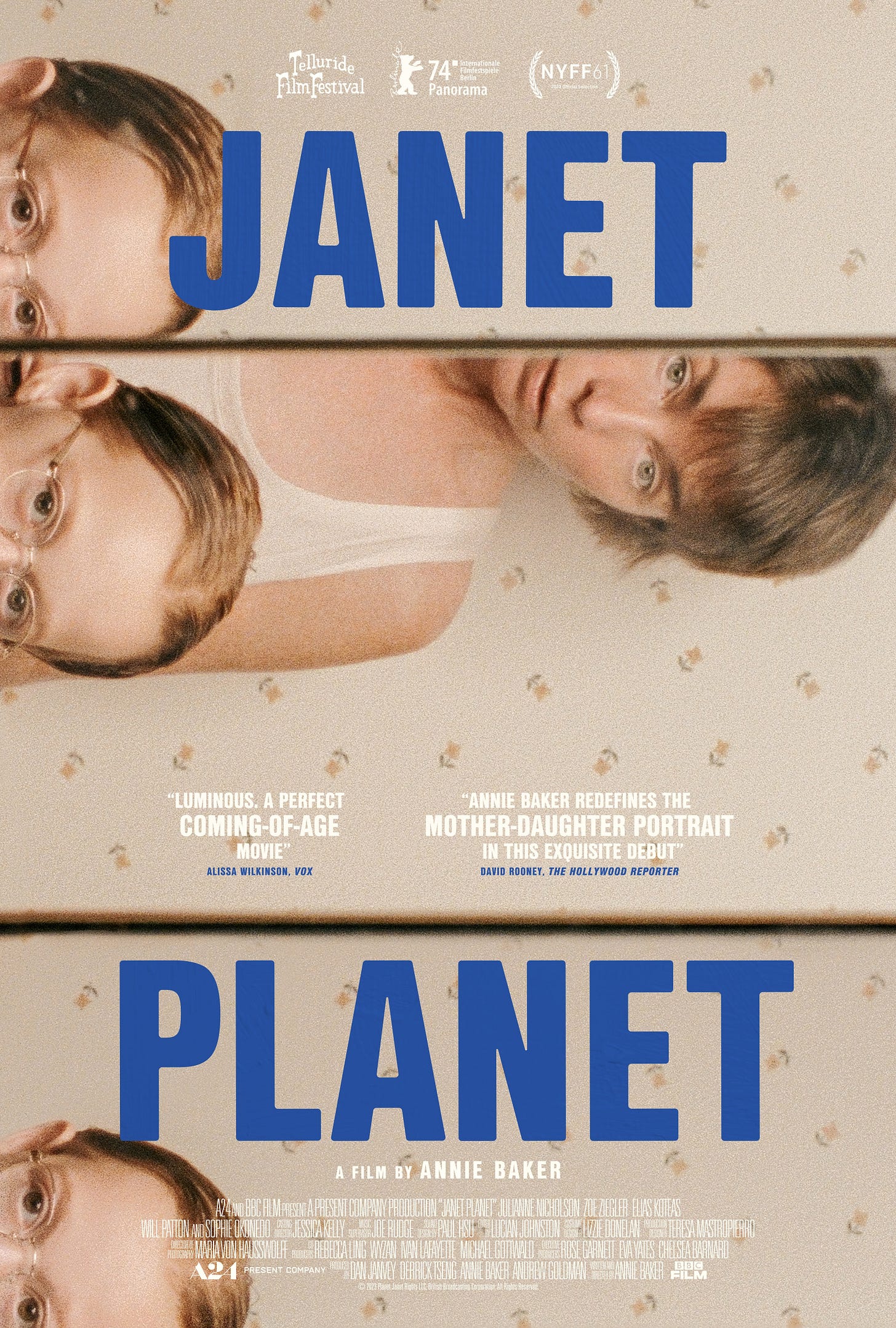‘Janet Planet’ is completely lost on me
Playwright Annie Baker’s directorial debut is getting some of the year’s best notices- and I don’t get it at all.
Every so often, a movie comes along that everyone loves except for me. I’m not someone who necessarily takes pride in being out of step with the critical consensus, nor am I usually bothered by being so.
The new film Janet Planet, the debut film from Pulitzer-winning playwright Annie Baker, debuted at Telluride last fall and landed in theaters this month through A24. It’s gotten some of the year’s strongest reviews, with a Rotten Tomatoes critics score of 87 percent.
I didn’t hate the film or anything, I just don’t get it. The film successfully evokes a sense of time and place, and the two lead performances are impressive.
But I found the whole thing slow and tedious, and at no point did I understand its purpose. It’s a one-crazy summer movie where nothing all that crazy or memorable happens.
Janet Planet, written and directed by Baker, is set in a small town in Western Massachusetts in the summer of 1991. Lacy, played by newcomer Zoe Ziegler, is an 11-year-old girl who is unusually attached to her single mother, Janet (Julianne Nicholson). Janet works out of their farmhouse as an acupuncturist and is the center of many people’s attention, starting with her daughter.
Over that summer, Janet cycles through romantic relationships with men (first Will Patton and later Elias Koteas) and a spell when a friend (Sophie Okonedo) lives with them. Lacy, however, remains skeptical of all three of the adult visitors.
The film is set in a geographically specific post-hippie milieu in which the ‘60s have been over chronologically for quite a while, but they never entirely went away as a state of mind. There’s a theater troupe that moonlights as a cult (or possibly the other way around), and Free Tibet bumper stickers on cars.
Once again, Janet Planet very convincingly recreates what a summer in rural Western Massachusetts during that exact year must have looked and felt like.
There’s an overarching sense of early-‘90s hippie revivalism among political activists and culty theater people. Koteas’ character, Avi, nails this best of all. He’s one of those ‘90s characters who’s Jewish with a sideline in Buddhism and also given to endless pontification. The only detail that was off was that he didn’t have a ponytail.
But beyond all that, I’m not sure why this is supposed to be interesting. I wasn’t all that invested in the mother-daughter relationship or either of their professional or romantic pursuits.
Without looking it up, I assumed that Janet Planet must be an autobiographical story based on the director's childhood. She must have had a single mom who was an acupuncturist or something like that, and she must have grown up in that part of the country at that time and in those circumstances. It’s hard to imagine such a specific story if it wasn’t autobiographical.
But it turns out… it’s not. While Baker did grow up in Amherst, she’s not exactly the protagonist's age. She wasn’t raised by a single mother, nor was her mother an acupuncturist.
Baker happens to be married to the brother of Noah Baumbach, a filmmaker who has spent much of his career writing screenplays inspired by his parents’ divorce and later by his own. But Baker is not, it appears, directly mining family trauma or resentment of her mother in this particular work, the way her brother-in-law often does.
Janet Planet opens Friday in some markets, and I expect some of those who see it will enjoy it. But this one, I admit, is just not for me.



You nailed it.